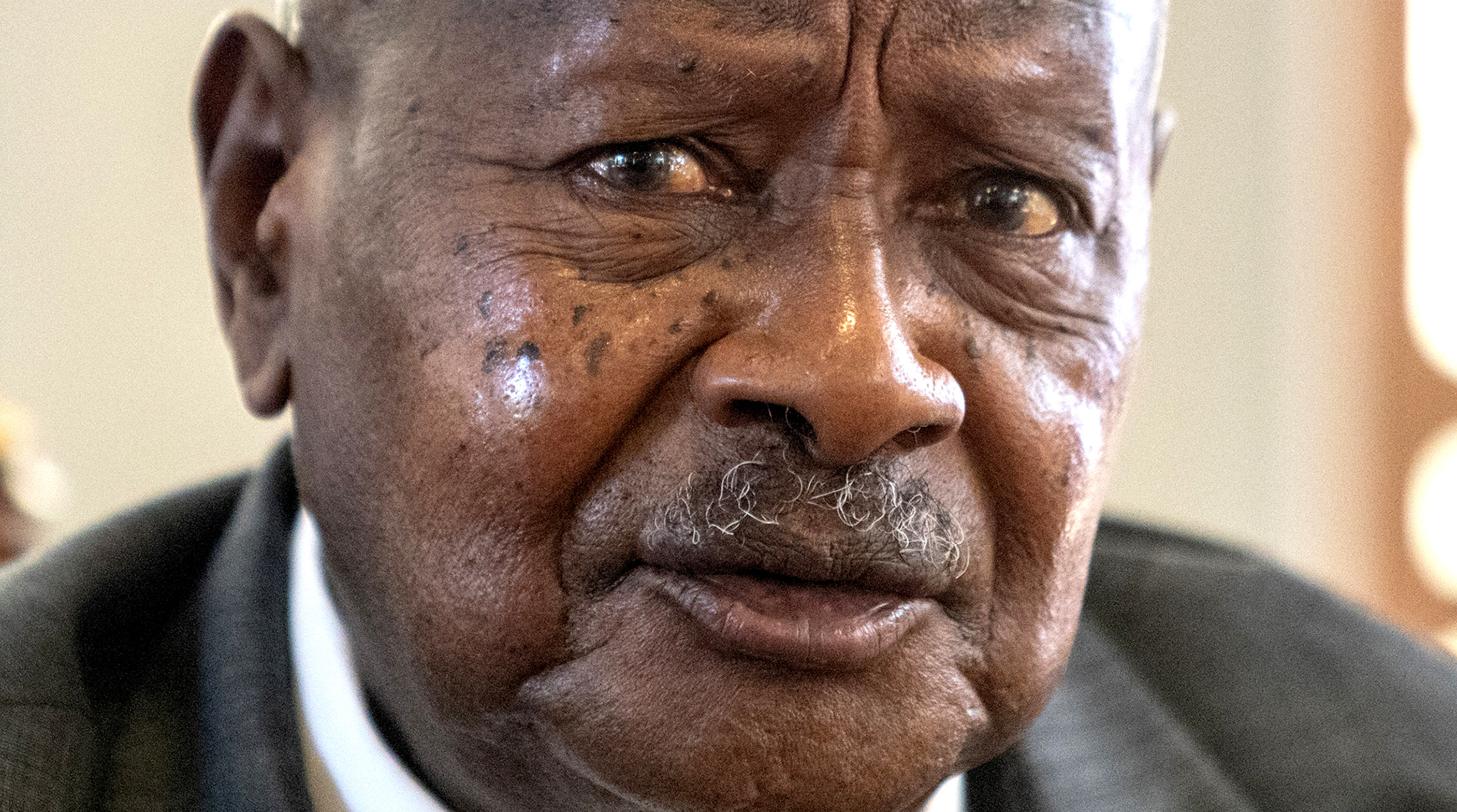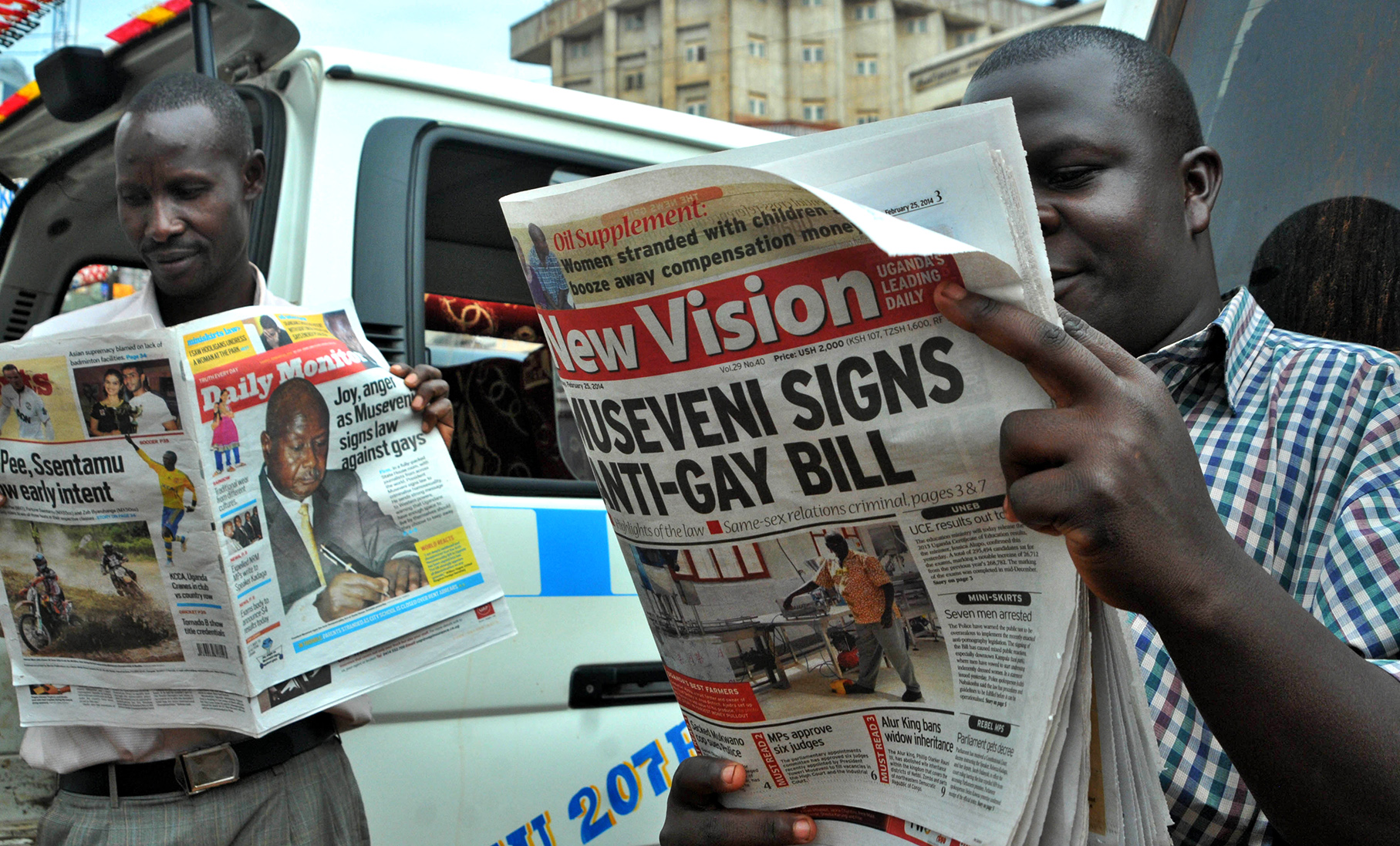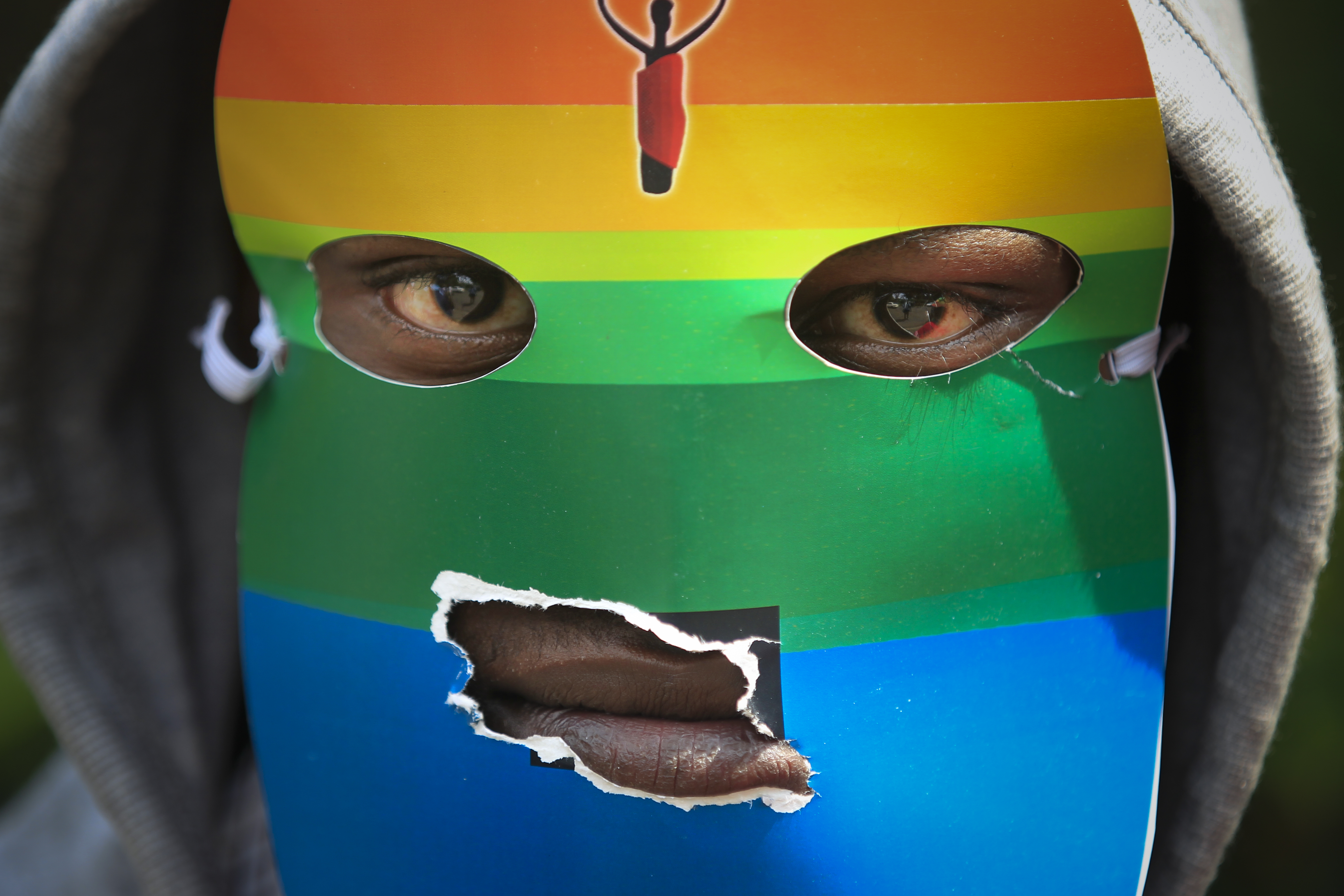More than 30 African countries, including Uganda, already ban same-sex relations. The new law appears to be the first to outlaw merely identifying as lesbian, gay, bisexual, transgender and queer (LGBTQ), according to rights group Human Rights Watch.
Supporters of the new law say it is needed to punish a broader array of LGBTQ activities, which they say threaten traditional values in the conservative and religious East African nation.
In addition to same-sex intercourse, the law bans promoting and abetting homosexuality as well as conspiracy to engage in homosexuality.
Violations under the law carry severe penalties, including death for so-called aggravated homosexuality and life in prison for gay sex. Aggravated homosexuality involves gay sex with people under the age of 18 or when the perpetrator is HIV positive, among other categories, according to the law.
The legislation will be sent to President Yoweri Museveni to be signed into law.
 Ugandan President Yoweri Museveni in Pretoria on 1 March 2023. (Photo: Guillem Sartorio / Bloomberg via Getty Images)
Ugandan President Yoweri Museveni in Pretoria on 1 March 2023. (Photo: Guillem Sartorio / Bloomberg via Getty Images)
“Our creator God is happy (about) what is happening... I support the bill to protect the future of our children,” legislator David Bahati said during debate on the bill. This is about the sovereignty of our nation, nobody should blackmail us, nobody should intimidate us.”
 Ugandans read daily newspapers on 25 February 2014 with headlines and images of Ugandan President Yoweri Museveni signing the anti-gay legislation in Kampala on 24 February 2014. (Photo: EPA / Ronald Kabuubi)
Ugandans read daily newspapers on 25 February 2014 with headlines and images of Ugandan President Yoweri Museveni signing the anti-gay legislation in Kampala on 24 February 2014. (Photo: EPA / Ronald Kabuubi)
‘Draconian’
Frank Mugisha, a prominent Ugandan LGBTQ activist, denounced the legislation as draconian. “This law is very extreme and draconian... it criminalises being an LGBTQ person, but also they are trying to erase the entire existence of any LGBTQ Ugandan,” he said.
Visit Daily Maverick's home page for more news, analysis and investigations
Museveni has not commented on the current proposal but has long opposed LGBTQ rights and signed an anti-LGBTQ law in 2013 that Western countries condemned before a domestic court struck it down on procedural grounds.
Read more in Daily Maverick:
“Progress and setbacks on LGBT rights in Africa — an overview of the last year”
“Africa and homosexuality: Where science meets morality”
In recent weeks, Uganda authorities have cracked down on LGBTQ people after religious leaders and politicians alleged students were being recruited into homosexuality in schools.
This month, authorities arrested a secondary school teacher in the eastern district of Jinja over accusations of “grooming of young girls into unnatural sex practices”.
She was subsequently charged with gross indecency and is in prison awaiting trial.
The police said on Monday they had arrested six people accused of running a network that was “actively involved in the grooming of young boys into acts of sodomy”. DM/Reuters
(Reporting by Elias Biryabarema; Editing by Aaron Ross, Hereward Holland and Josie Kao)




 Ugandans read daily newspapers on 25 February 2014 with headlines and images of Ugandan President Yoweri Museveni signing the anti-gay legislation in Kampala, Uganda, 24 February 2014. A controversial bill that introduces lengthy prison sentences for people who engage in homosexual acts was signed into law by Ugandan President Yoweri Museveni yesterday. The law, which has been strongly criticized by Western governments and human rights groups, punishes first-time offenders with up to 14 years in jail. People convicted of same-sex intercourse with a disabled person or a minor, as well as HIV-positive people caught engaging in homosexual acts, face life imprisonment. The law also makes it a crime not to report gay people. For the first time, lesbians are also targeted by legislation. (Photo: EPA / RONALD KABUUBI)
Ugandans read daily newspapers on 25 February 2014 with headlines and images of Ugandan President Yoweri Museveni signing the anti-gay legislation in Kampala, Uganda, 24 February 2014. A controversial bill that introduces lengthy prison sentences for people who engage in homosexual acts was signed into law by Ugandan President Yoweri Museveni yesterday. The law, which has been strongly criticized by Western governments and human rights groups, punishes first-time offenders with up to 14 years in jail. People convicted of same-sex intercourse with a disabled person or a minor, as well as HIV-positive people caught engaging in homosexual acts, face life imprisonment. The law also makes it a crime not to report gay people. For the first time, lesbians are also targeted by legislation. (Photo: EPA / RONALD KABUUBI) 